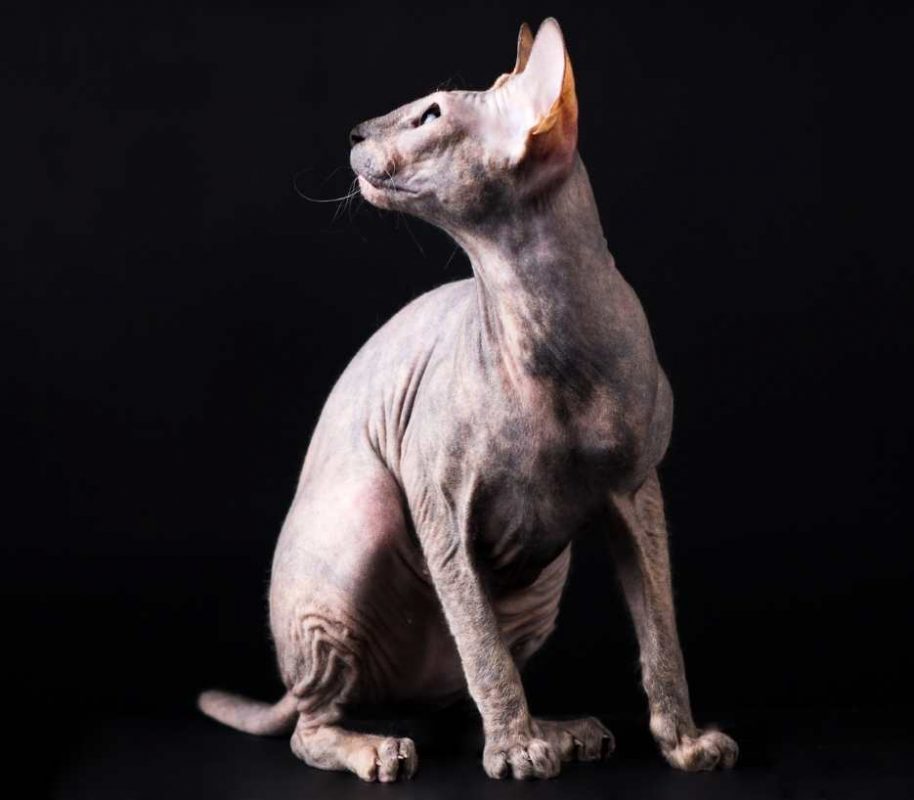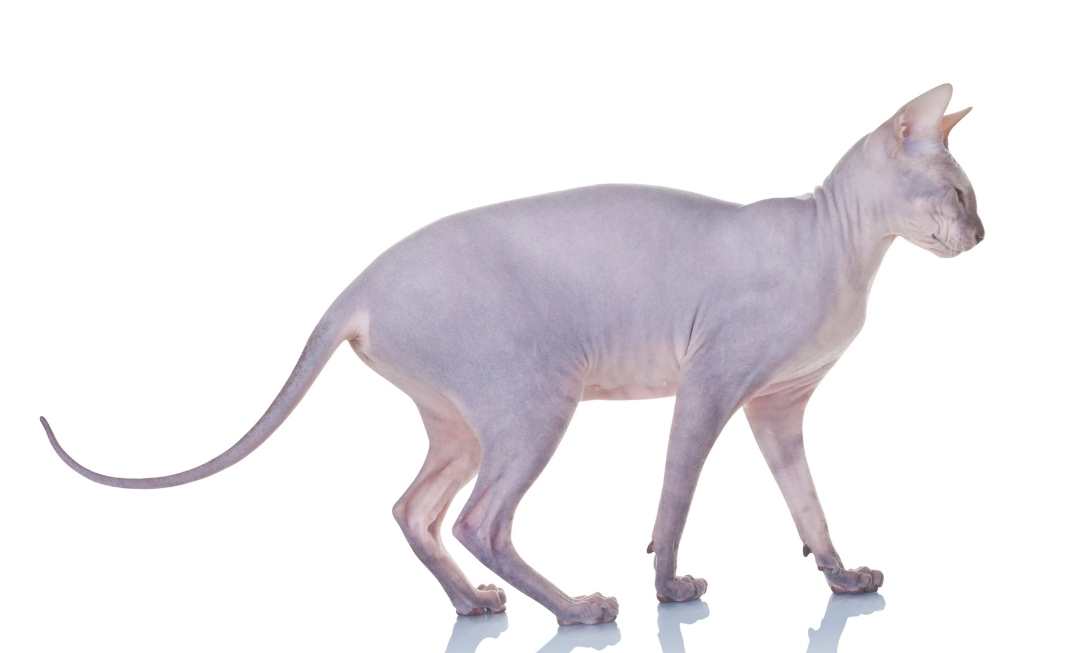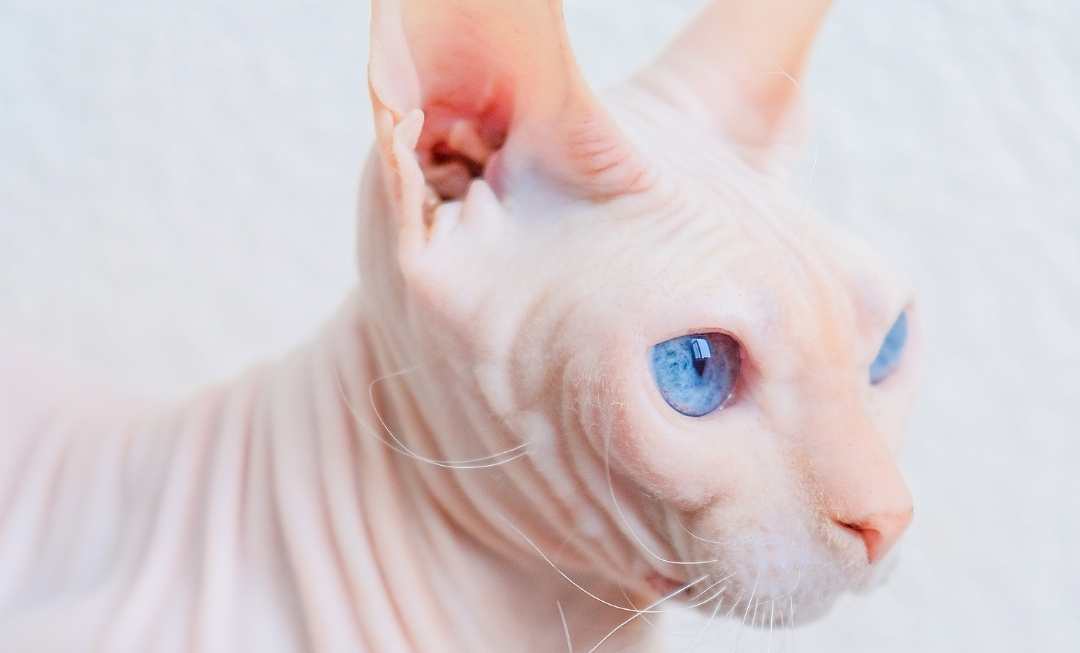
The Donskoy cat, also called the Don Sphynx or Russian Hairless, is a unique and stunning breed from Russia. Unlike the Canadian Hairless Sphynx, the Donskoy’s hairlessness results from a dominant mutation, giving it its distinctive look and fascinating charm.
In 1987, cat breeder Elena Kovaleva discovered a hairless blue tortoiseshell kitten in Rostov-on-Don, Russia. She named her Varvara. By four months old, Varvara began losing her fur. After mating with a tomcat, she produced a litter that became the foundation of the Donskoy breed. Recognized by the World Cat Federation (WCF) in 1997 and The International Cat Association (TICA) in 2005, the Donskoy has since become a cherished breed. Breeding experiments, such as crossing Donskoys with Oriental Shorthairs to create the Peterbald, are no longer sanctioned to preserve the Donskoy’s unique characteristics.
Donskoy cats are a blend of elegance and affection. Their soft-hearted, curious, and social nature makes them delightful companions. Friendly, intelligent, and enthusiastic, Donskoys love playing games and are curious about everything around them. They are exceptionally affectionate, often considering any visitor a new friend and seeking companionship with other animals. Loyal and devoted, they thrive on company and do best in homes where they aren’t the sole pet. Donskoys are easily trained to follow voice commands and enjoy participating in all your activities.

The Donskoy comes in four coat types—Brush, Flocked, Velour, and Rubber Bald—which all lead to hairlessness, except for Brush. Each coat type has its unique texture and timeline:
Donskoys have elastic, velvety, wrinkled skin that can sweat and tan like human skin. They are medium-sized, robust cats with solid boning, smooth, hairless skin, and noticeable wrinkles. Males are typically larger and more muscular than females, with distinctive features such as stud jowls and a thicker neck. Their oval feet have long, slender toes separated by webs, adding to their unique appearance.

Grooming
Daily wipe-downs are essential to remove skin oils; bathing once a week or bi-monthly is recommended. Be mindful of extreme weather as their skin can sweat and tan. Consult your vet about suitable sunscreen for sunny days. Donskoys may grow a winter coat but are delicate and unsuitable for harsh winters. Regularly trim their nails, clean their ears, and brush their teeth with vet-approved toothpaste. A tall scratching post helps satisfy their natural scratching instincts.
Nutrition
Donskoys thrive on high-quality dry kibble and canned food. Always provide fresh, clean water daily. To encourage drinking, place the water bowl at least three feet away from food to avoid overwhelming food smells. Filtered drinking fountains can be a great alternative.
Health
Generally healthy, Donskoys should keep up with vaccinations and parasite treatments. Regularly check for skin issues and protect them from sunburn due to their hairlessness.
The Donskoy cat is a gentle, affectionate, and unique breed that brings joy and intrigue to any household. Their captivating appearance and lively personality make them wonderful companions for those who appreciate the beauty of the extraordinary.
Unleash the secrets to feline happiness! From picking the purr-fect breed to mastering grooming techniques and choosing the healthiest foods, we’ve got you covered. Get top-notch advice from world-renowned veterinarians, cat behaviorists, and groomers.
🐾 Visit our blog and become the ultimate cat parent! 🐾
Felinopedia is an online cat encyclopedia dedicated to sharing valuable information with (new) cat parents. We aim to help you give your furry friend the best tools and advice for a long, happy, and healthy life.
Join us on this journey to ensure your cat’s wellbeing.
Happy Cats, Happy Life